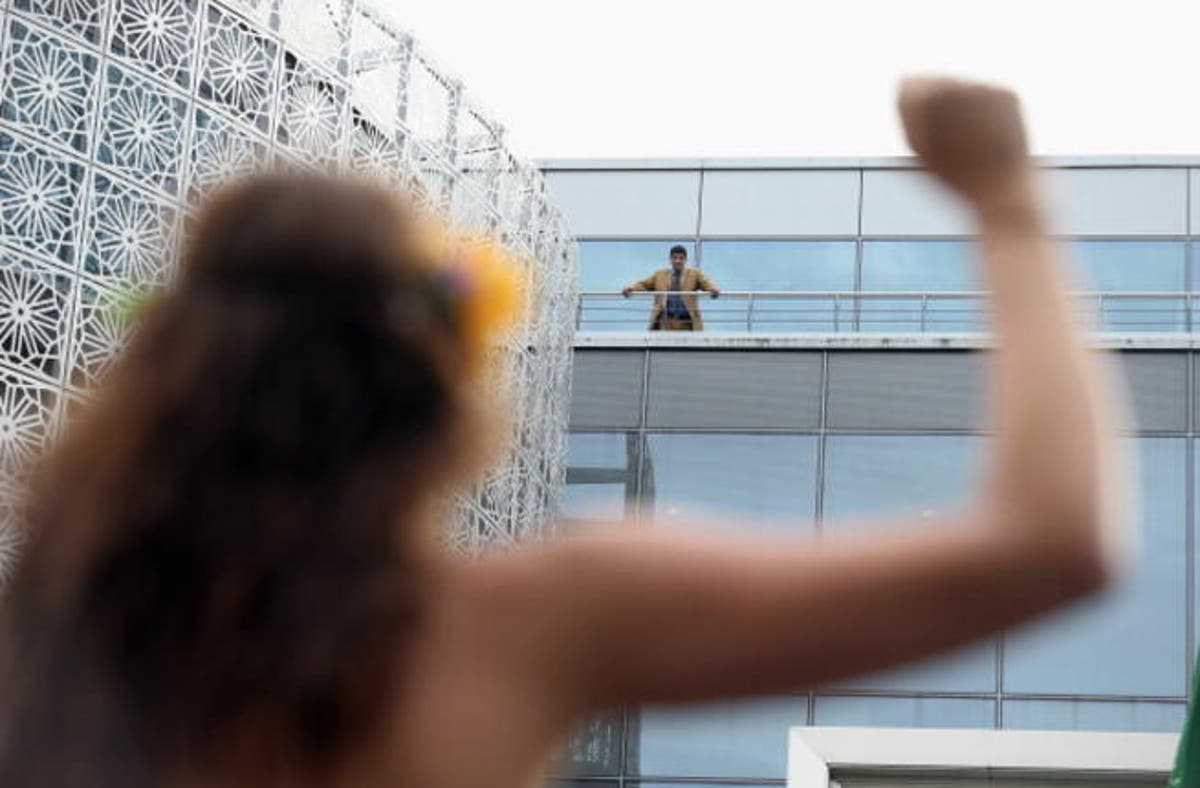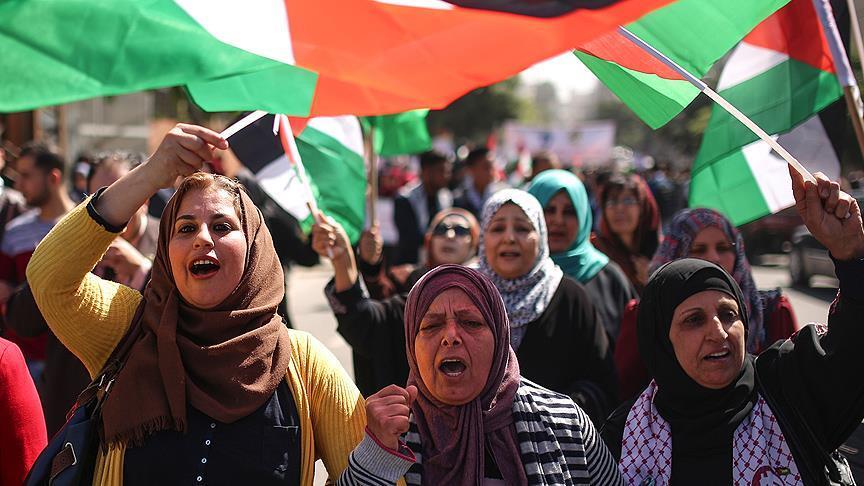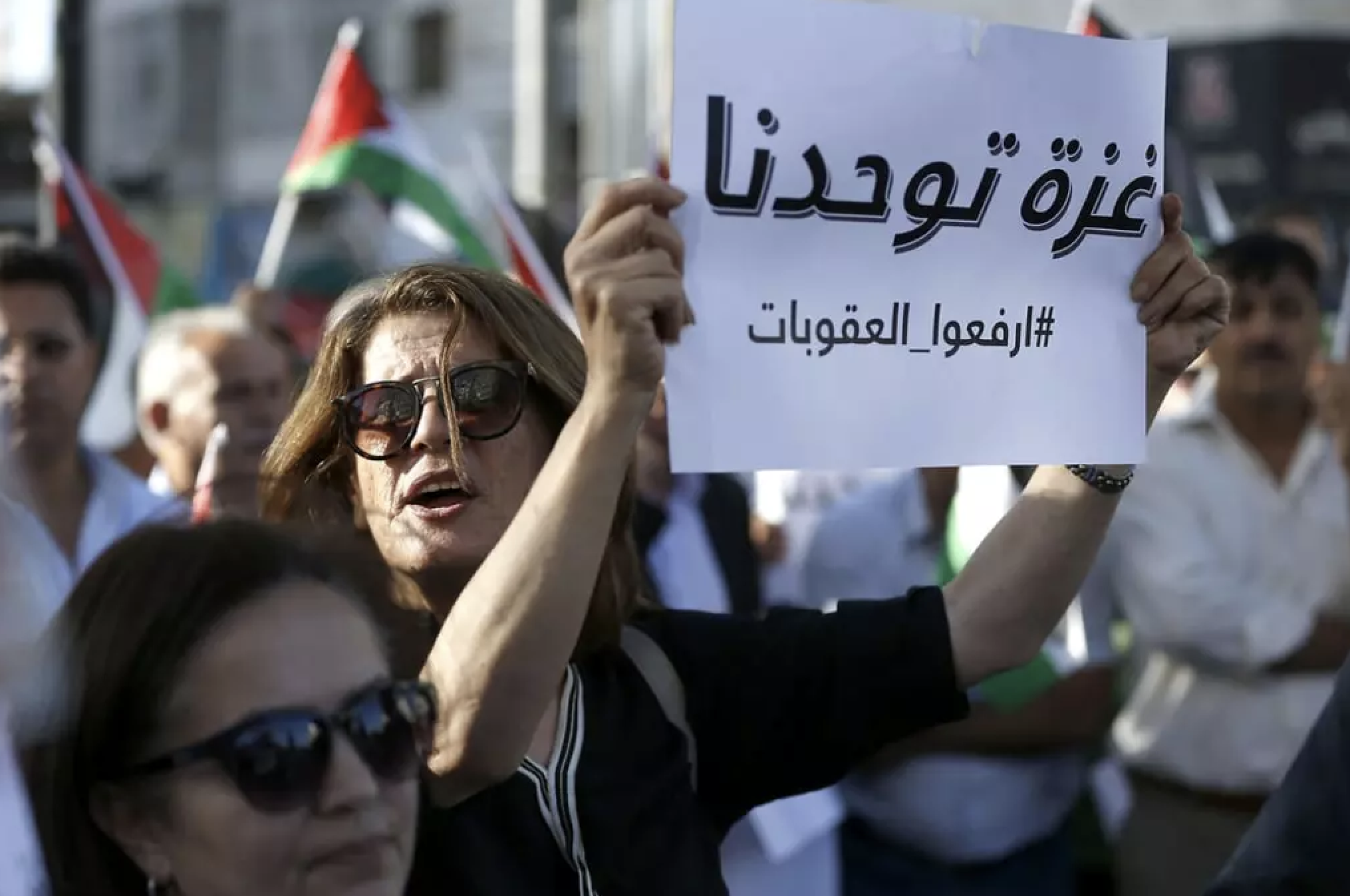Originally published by Ma’an News Agency on December 24, 2013.
BETHLEHEM (Ma’an) — As Christmas Eve celebrations took over the streets of Bethlehem on Tuesday, rumors swirled of a plot to disturb the festivities in Jesus’ birthplace.
The plot, however, was not connected to the Israeli occupation, nor to any Palestinian faction or popular resistance movement.
The threat to Christmas this year emerged instead from the Ukrainian organization FEMEN, a women’s group that has gained fame in the last five years for organizing semi-nude and topless protests targeting political and religious figures deemed to be complicit in the exploitation of women.
Earlier in December, sources close to the group — which refers to itself as “sextremist” — claimed that it was planning to target Christmas Eve mass in the Church of the Nativity in Bethlehem this year.
Although the message of the Bethlehem protest was not made clear in advance, past protests have targeted Christian institutions for their perceived role in justifying and legitimating the oppression of women.
Last week, FEMEN leader Inna Shevchenko told Metro Newspaper that while she could not confirm the next target, “Bethlehem can be a place for us to attack. This city can see the rebellious naked breasts of Femen.”
The reality of the threat began to sink in on Thursday, after Shevchenko ran through the Vatican City yelling “Christmas is cancelled,” with the words “Jesus is aborted” written across her bare chest.
A statement on their website said that the “international topless marathon” was a protest against religious restrictions on women’s right to choose to have an abortion.”
FEMEN is breaking the strategies of patriarchy in ownership of women’s body that is protected, hidden by religions … (Not) any freak in a white dress can put nose in women’s vagina.”
The statement ended with a warning: “We move to other holy place (sic). They didn’t give us peace, we will not give them any!”

‘Neither undressing nor covering necessarily frees anyone’
Bethlehem mayor Vera Baboun said in a statement in early December that while FEMEN members are welcome to visit Bethlehem for Christmas, “Any protest that does not observe Palestinian customs and traditions and which violates public decency is unwelcome.”
And while Bethlehem security forces try their hardest to anticipate a FEMEN strike — a formidable task, given the high number of Eastern European tourists the holy city receives — the potential action has stirred a larger debate about feminism and international solidarity.
Nagham Yassin, a women’s rights activist from Jerusalem, said that although she agreed with FEMEN on many issues, she strongly disagreed with their decision to protest at the Church of the Nativity.
“It’s their right to protest,” she said, “but people (at the Church) are expressing their religious freedom. (FEMEN) doesn’t have the right to protest in this place in this way, whether in Palestine or in any other country.”
“The protest is against the leaders, it’s not against ordinary people who are only expressing their religious freedom,” she added.
“The problem is about the location and the need for respect for the place.”
Yassin also pointed out that the struggle against patriarchy and women’s oppression in religion was not a concern unique to FEMEN, highlighting that in the region it was possible to see how all three Abrahamic faiths — Christianity, Judaism, and Islam — had been used to restrict women’s rights.
Palestinian feminists, she stressed, were fighting for their rights, but in ways specific to their circumstances.
Ali Mawassi, a Palestinian women’s rights activist and Ph.D. student of Arabic and Islamic Studies, told Ma’an that although he sympathized with FEMEN’s goal of women’s liberation, he took strong issue with the idea that nude protests were the best way to achieve that goal.
“Neither undressing nor covering necessarily frees anyone from any kind of patriarchy, because it is not an issue of undressing and covering to begin with,” he said.
“This is only at the external level and not (tackling) the essence of the problem, which (requires) the dismantling of power relations,” he added.
Mawassi pointed out that Palestinian women participated extensively in both secular and religious political parties, stressing that patriarchy has many forms, including secular.
“Modern Palestinian society is extremely diverse and within it there are secularists, liberals, conservatives, and fundamentalists. … Paradoxically, the status of women in secular and liberal currents does not differ that much from their status in religious parties,” he argued.
“It has even been suggested by some studies that women in religious movements in Palestine are better represented and have more roles than in non-religious parties,” he added.
We need “to measure the successes of feminism based on the ability to improve the status of women in their communities,” he argued, not based on their ability to create waves in the media.


‘We fight in ways related to our history’
“The central problem with FEMEN is that in its struggle for women’s liberation … it does not take into account the particularities of cultures and civilizations between peoples and nations, which require different ways and techniques to address the particular realities,” Mawassi said.
He stressed that a FEMEN protest in Bethlehem would garner attention but create little change because it would not tackle root causes of patriarchy and oppression, but instead seek to shock the public.
He also cited the past example of FEMEN protests in Tunisia, which in his opinion achieved little because they did not have any relation to the society in which they were taking place.
“I think (FEMEN) will fail to make any substantive effect on the Arab and Islamic worlds, besides the impact of the media which soon wears off.”
Yassin also conceded that nude protests successfully capture media and public attention, but pointed out, “They’re allowing the reaction to take over. People will oppose them (based on the nudity), and there will be a negative reaction against feminists and feminist ideas more broadly.”
As a result, the protest could potentially provoke a negative reaction against feminist movements within Palestine, who would be identified with FEMEN in the public imagination.”It’s possible the negative reaction will hit Palestinian feminists and people will attack them,” Yassin said.
And this had the potential to do severe damage to Palestinian women’s movements struggling for change on the ground.
“In Palestine, women have fought for their rights along their own path, fighting in all aspects of life and participating actively alongside men against the (Israeli) occupation.”
“But we fight in ways related to our history and to our circumstances.”
“The Palestinian woman is neither lacking all of her rights nor does she possess them all,” Yassin continued, “but there are many feminist groups and organizations fighting for these rights.”
Similar to women all over the world, Palestinian women continue struggling to achieve equality in their own society. Regardless of whether or not FEMEN activists do decide to protest topless at the Nativity Church on Christmas Eve, the Palestinian feminist struggle will continue, on its own terms.
